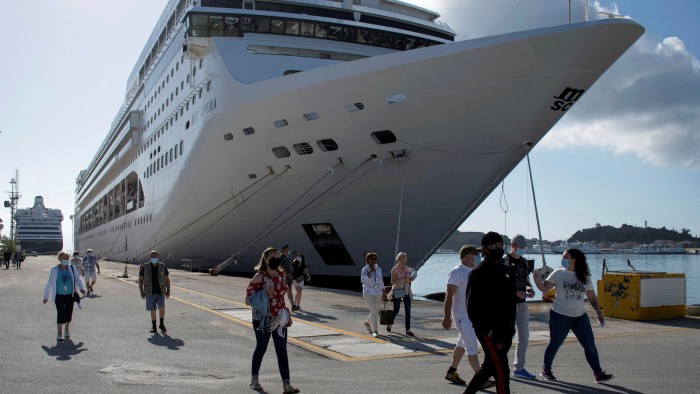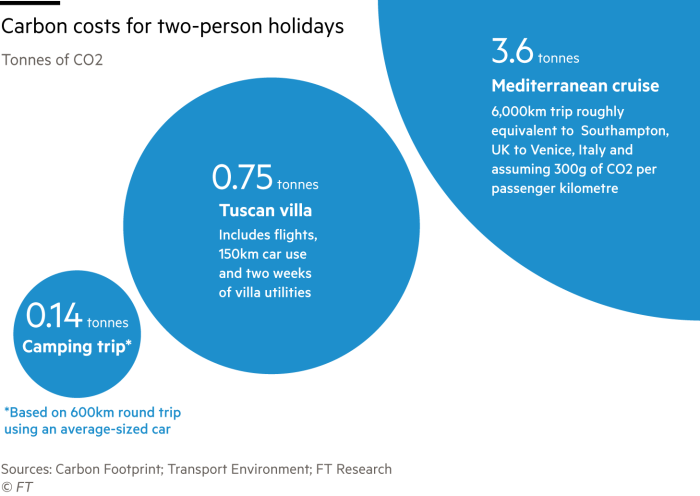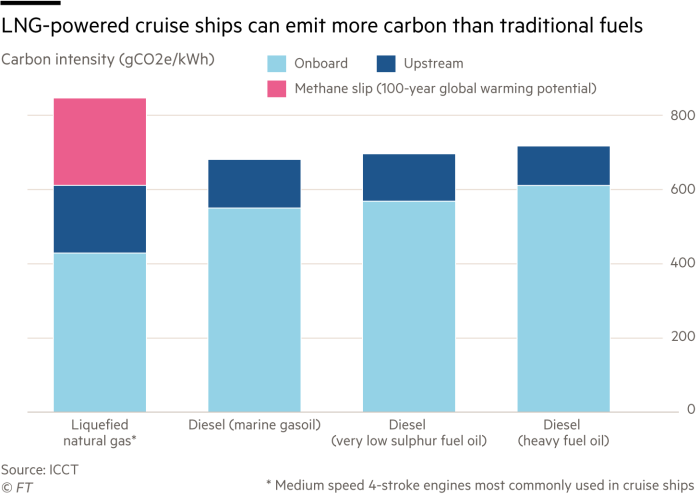Carbon counter: cruise holidays sail away with travel emissions

Roula Khalaf, Editor of the FT, selects her favourite stories in this weekly newsletter.
Carbon counter is a series of Lex articles estimating the climate cost of different lifestyle choices. The other articles are here
Britons contemplating another year of soggy domestic holidays can take solace from their more environmentally friendly credentials. Travelling to exotic climes is easy on the wallet thanks to low-cost airlines and package deals. But those trips pack a hefty punch in terms of the carbon footprint left behind.
Lex’s Carbon Counter this week compares the impact of three holiday options: a Mediterranean cruise, a villa stay in Tuscany and a camping trip to Wales. Carbon levels are naturally lower for local trips, but just quite how much lower is striking. The individual carbon footprint of a cruise trip is almost five times that of a villa holiday and 25 times that of camping.
Cruise ships make up a small part of the shipping industry’s 2.5 per cent contribution to total annual greenhouse gases. But the nature of cruising means that even on a Mediterranean trip with numerous stops, the vessel requires power 80 per cent of the time. Electricity for vast onboard amenities must be generated by engines when at sea.

The murky legal status of open seas means that regulation to limit the environmental impact of shipping has been slow. Rules to lower the sulphur content of fuel were a decade in the making and only came into force last year. Image-conscious cruise lines say they are ahead of the rest of the shipping industry. New lower-pollution liquefied natural gas-powered ships are joining cruise fleets. But LNG ships can have a higher carbon footprint once gas leakage is accounted for, say campaigners at Transport & Environment.

Cruise lines must clean up their carbon reporting too. The industry measure of “CO2 per available lower berth-km” assumes ships run at full capacity. In reality, CO2 per passenger kilometre can double if rooms are not occupied by two people. Luxury cruise holiday cancellations may be bad for morale but they are good for the environment.
Lex is interested in hearing from readers. Do carbon footprints factor into your holiday plans?
Climate Capital
Where climate change meets business, markets and politics. Explore the FT’s coverage here.
Are you curious about the FT’s environmental sustainability commitments? Find out more about our science-based targets here

Comments